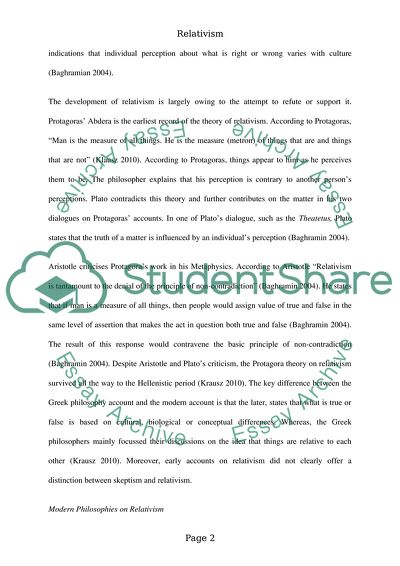Cite this document
(The Concept of Relativism Coursework Example | Topics and Well Written Essays - 2250 words, n.d.)
The Concept of Relativism Coursework Example | Topics and Well Written Essays - 2250 words. https://studentshare.org/sociology/1871434-knowledge-and-belief
The Concept of Relativism Coursework Example | Topics and Well Written Essays - 2250 words. https://studentshare.org/sociology/1871434-knowledge-and-belief
(The Concept of Relativism Coursework Example | Topics and Well Written Essays - 2250 Words)
The Concept of Relativism Coursework Example | Topics and Well Written Essays - 2250 Words. https://studentshare.org/sociology/1871434-knowledge-and-belief.
The Concept of Relativism Coursework Example | Topics and Well Written Essays - 2250 Words. https://studentshare.org/sociology/1871434-knowledge-and-belief.
“The Concept of Relativism Coursework Example | Topics and Well Written Essays - 2250 Words”. https://studentshare.org/sociology/1871434-knowledge-and-belief.


